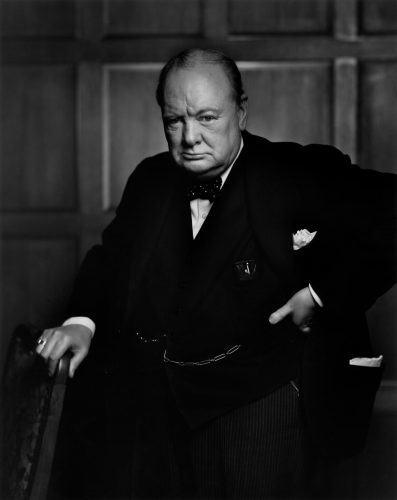
In the midst of the pandemic, I find myself watching how the various elected officials are dealing with the crises, some of them getting out in front of it, others seemingly in denial. At the same time, I am reading The Splendid and the Vile, Erik Larson’s brilliant account of Winston Churchill’s struggles during the early years of the war. The book, and what is happening to the world right now, have gotten me to thinking about Leadership. In my lifelong quest for inspiration, I’ve read more biographies and articles than I can count about the great, the famous, the infamous—Julius Cesare and Napoleon Bonaparte, George Washington and Abraham Lincoln, Cornelius Vanderbilt and Andrew Carnegie, Mohandas Gandhi, Martin Luther King and Mother Teresa, to name a few. And though the world is filled with people who understand more about leadership than I will ever know, I believe I’ve been able to discern some of the basic qualities shared by great leaders. And knowing that few will likely ever read these words, what I see happening in the world and how our leaders seem to be handling these dark days, compels me to set down my thoughts. So here they are:
It seems to me that the first and most important quality inhering in all great leaders is that they put others before themselves. Simply put, leaders serve their followers.
The guiding star of a great leader isn’t their own self-interest, but the well-being of their fellow men and women. A great leader doesn’t lead simply because they want to be the leader, because they need people to salute them, or stand and applaud when they enter the room, or call them “boss,” or “general” or “your highness,” or “Madam President.” A great leader choses to lead because, in their heart, they want to achieve something, something that helps others, whether those others be teammates or neighbors or co-workers, fellow soldiers or fellow citizens, or citizens of the world.
Great leaders endeavor to improve living conditions and working conditions. Great leaders struggle to promote equality, understanding and tolerance. Great leaders strive to bring prosperity to the poor, health to the sick, education to the uninformed. Great leaders fight to win freedom for the enslaved and to bring peace to those torn by war. And the greatest leaders seek to inspire others to work for, to struggle for, fight for, and, if necessary, to die for, great causes.
The heart of a great leader, then, beats with purpose. High purpose. Noble purpose. Most importantly, a purpose other than the leader’s own self-interest. To put it simply, great leaders shout, “Don’t look at me! Look at them!” And in the end, a great leader urges his followers, “Don’t look at me! Look into yourselves!” Because, ultimately, a great leader’s heart leaps to make others great by motivating them to do great things.
And what of the great leader’s mind? The tool they use to achieve the goals that drive their heart. I think great leaders share a certain type of intelligence. First and foremost, they are laser-focused on the truth. More than simply accepting it, they seek it out, they hunt it. And when they find the truth, great leaders face it, even when it is hard. Especially when it is hard. And once they face a hard truth, great leaders do not hide it from others. They do not lie about it or downplay it. A great leader lifts the difficult truth, brings it into the light for everyone to see, so that everyone has the same chance to look truth in the face.
Once the truth is in the open, once the facts are known, once what is real is recognized, great leaders handle it in the same way: they wrap their heads around the truth and they deal with it. And when the truth is especially hard or difficult or ugly, a great leader deals it with by doing everything they can to get out ahead of it. Great leaders hit hard truths with every resource at their disposal—science, math, medicine, money, machines, words, weapons.
And once the battle is joined, great leaders stay the course. This is because great leaders aren’t sprinters, they are distance runners. Great leader don’t obsess over winning news cycles or beating quarterly earnings estimates. Great leaders are in it for the long haul. Great leaders seek permanent change, lasting victory. And because the stakes are so high, great leaders are willing to pay the highest price, and they can rightfully inspire their followers to follow them into the fray, come what may.
Which brings me to a final characteristic that I believe is shared by all great leaders, the attribute that defines them as certainly as do their hearts and minds: their spines. Great leaders have courage. And they demand their follows exhibit the same. Which brings me to the words famously sounded by Winston Churchill as he addressed the young students at his alma mater, Harrow School, in October of 1941, ten months into England’s seemingly hopeless stand against the forces of darkness:
Never give in. Never give in. Never, never, never, never–in nothing, great or small, large or petty–never give in, except to convictions of honour and good sense. Never yield to force. Never yield to the apparently overwhelming might of the enemy.
Now that, goddammit, is leadership!
